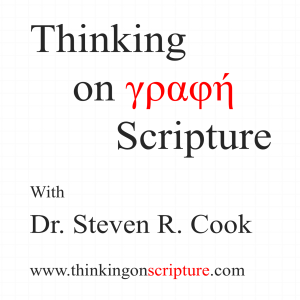
Saturday Aug 10, 2019
Micah 4:1-13
Micah chapter four presents a future hope to Judah in the last days when God will bring in the millennial kingdom and blessings. At that time, God’s kingdom—pictured as a mountain—will be established in Jerusalem (Mic 4:1). The Gentile nations of the world will go there, seeking God’s wisdom, saying, “Come and let us go up to the mountain of the LORD and to the house of the God of Jacob, that He may teach us about His ways and that we may walk in His paths” (Mic 4:2). This is in contrast to the Israelites in Micah’s day who did not care about God and His word. Though there was judicial corruption in Micah’s day, Messiah will, in the future, “judge between many peoples and render decisions for mighty, distant nations” (Mic 4:3a). There will be no war during the millennial reign of Christ, as everyone “will hammer their swords into plowshares and their spears into pruning hooks; nation will not lift up sword against nation, and never again will they train for war” (Mic 4:3b). This will be a time of universal peace and prosperity, in which earthly resources are used for good and not evil purposes (Mic 4:4), and Israel will walk with the Lord forever (Mic 4:5). In Micah’s day the weak and vulnerable were exploited; however, in the millennial kingdom, Messiah “will assemble the lame and gather the outcasts, even those [rebels] whom I have afflicted. I will make the lame a remnant and the outcasts a strong nation, and the LORD will reign over them in Mount Zion from now on and forever” (Mic 4:6-7). At that time God will establish His government in Jerusalem and sovereignty will be restored in Israel, as in the former days when David and Solomon were king (Mic 4:8). But Micah then pronounces near term prophesy concerning Judah, that the nation must go into captivity in Babylon. This will be a time when the nation has no king to govern or counselor to guide, and the unstoppable pain is likened to a woman in childbirth (Mic 4:9). Upon that generation, Micah states, “Writhe and labor to give birth, daughter of Zion, like a woman in childbirth; for now you will go out of the city, dwell in the field, and go to Babylon” (Mic 4:10a). At the time Micah prophesied, Babylon was under Assyria; but the nation would eventually rise to regional dominance and would serve as God’s instrument of judgment upon His rebellious people. Micah then jumps ahead and mentions the return of his people to Jerusalem, saying, “There you will be rescued; there the LORD will redeem you from the hand of your enemies” (Mic 4:10b). We know from Jeremiah, a prophet who lived a century after Micah, that the captivity of Judah would last seventy years (Jer 25:8-12; 29:1-14). The fulfillment of this short-term prophesy would validate Micah’s long-term predictions concerning the millennial kingdom. Micah mentions there were many nations in his day that desired Judah’s destruction, “Who say, ‘Let her be polluted, and let our eyes gloat over Zion’” (Mic 4:11). But these do not know God’s thoughts or purposes for them, that He will gather them for judgment because of their hostility toward His people (Mic 4:12). In the future, God will cause His people to rise again, saying, “For your horn I will make iron and your hoofs I will make bronze, that you may pulverize many peoples, that you may devote to the LORD their unjust gain and their wealth to the Lord of all the earth” (Mic 4:13). This will happen when God restores Jerusalem to prominence during the millennial reign of Christ.
No comments yet. Be the first to say something!